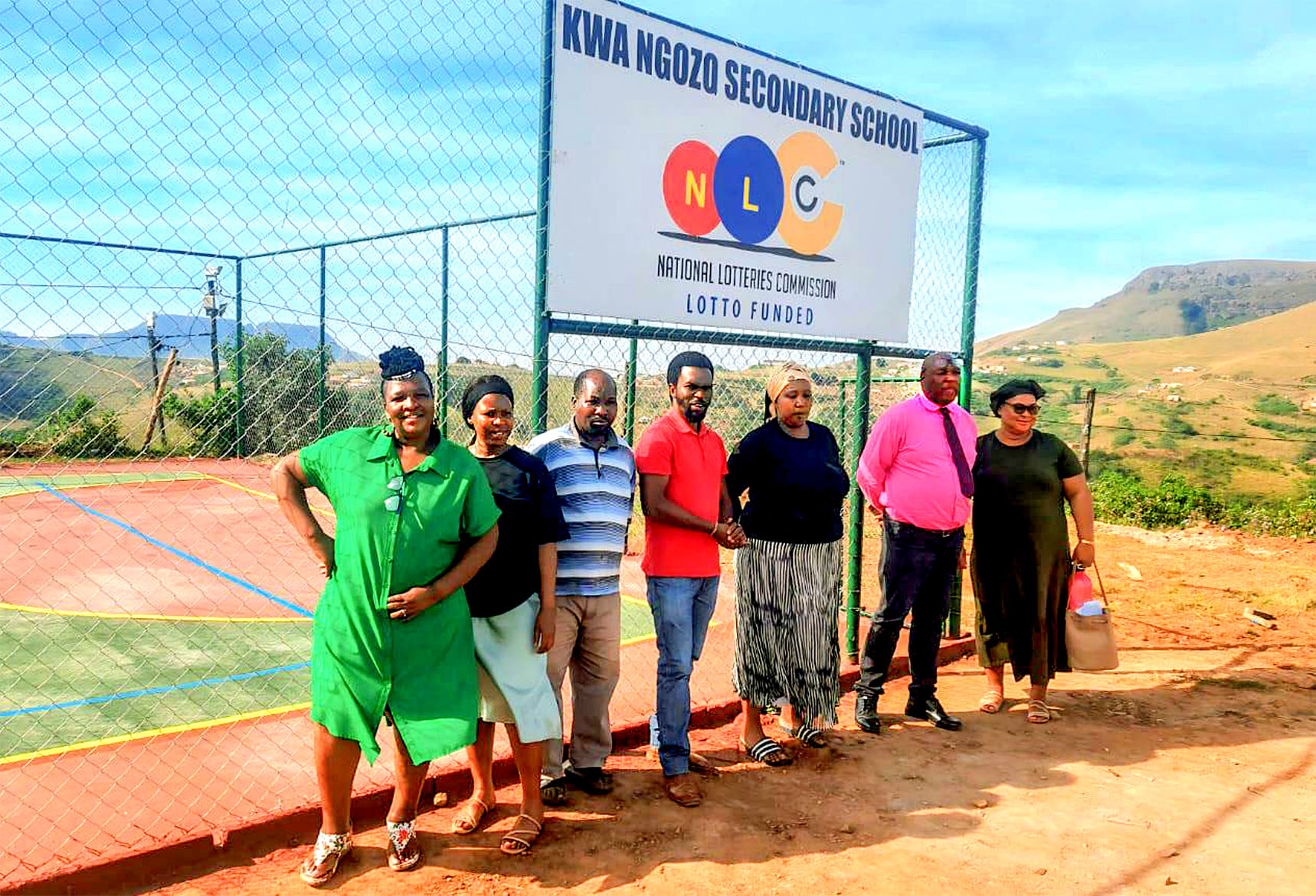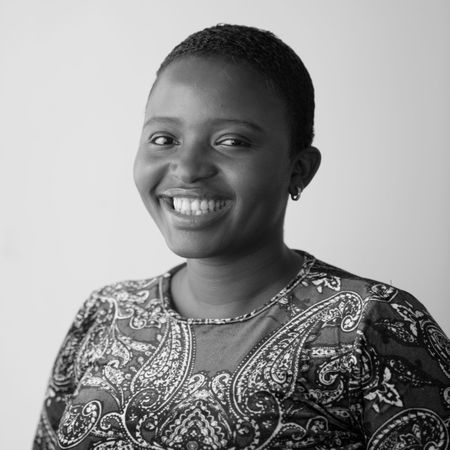Daily Maverick spoke to seven schools from Pietermaritzburg, Ndwedwe and Inanda that raised their concerns over the National Lotteries Commission (NLC) not paying the remaining percentage of money as agreed.
One principal said: “We received 70% of the funding to do the combo court and after that we submitted documents to receive the second tranche of payment. People from the commission came to physically see how far we are with the court, which is almost done. After that, we never heard anything about it. When you go there, you are sent from one person to another, one office to another, without receiving an answer.”
Educators and principals of the schools sang in one voice, all sharing similar sentiments. They shared documents with Daily Maverick showing contracts and images of the combo courts from construction to the current state.
Ndabenhle Primary School in uMzinyathi, Ndwedwe, KZN, is in an area with mostly lower-income households, with a lot of infrastructure challenges that are exacerbated by inclement weather that has plagued the province.
An educator from the school said: “The community around the school is not doing well. Our children cross rivers to get to school. Sometimes, you will ask a child what’s wrong and they say they have a tummy ache, but you will find that it is because of them being hungry. We then send a child home with food left over from the food given to the children at lunch,” she explained.
“So, we were so happy to get help with the sportsground because it brings hope to the children and allows them to learn their other talents. In general, we are missing some of the facilities children need, such as a Grade R class, so we were hoping to use some of this money for that as well,” the educator said.
/file/dailymaverick/wp-content/uploads/2025/11/1000134168.jpg)
Emakhasini Primary School, Khanyisa Primary School and Ezimpondweni Primary School are some of the other schools that came forward to claim that they are struggling to reach the National Lotteries Commission.
The leadership of Ndabenhle Primary in Pietermaritzburg expresses a different case. They do not have a sportsground and applied for the grant in a process they say took three months. They were approved, but on the day the principal and her team went to sign the agreement, they say the agreement was taken back and they ended up not signing in March 2024.
A member of the school governing body (SGB) at the primary, Nono Dlamini, told Daily Maverick: “We were so hopeful because we thought the children would find something that could encourage them and open their minds outside of the classroom. Some kids are not gifted in schoolwork, so when they get a place to play we can learn about their other talents,” said Dlamini.
When asked if the NLC gave a reason for retracting the contract, the SGB member said the school previously received funding over 10 years ago, under a different leadership and now the principal is no longer there to account for that grant. Children in the school play on a patch of land. “It is really bad. Kids go as far as searching for a sportsground to play in the area,” Dlamini added.
/file/dailymaverick/wp-content/uploads/2025/11/1000134173.jpg)
/file/dailymaverick/wp-content/uploads/2025/11/1000134172.jpg)
Chapter 14 of the Basic Education Rights Handbook by SECTION27 states that schools need proper facilities such as adequate school buildings, sufficient classrooms, proper toilets, laboratories, libraries and sports fields in order to provide a quality education, and a safe and healthy learning experience.
“Sadly, thousands of public schools across the country struggle with inadequate infrastructure, and learners are forced to learn in schools that only have mudbrick or zinc classrooms, cracked floors and ceilings, loose wiring, broken toilets or pit latrines, and no libraries or laboratories.
“Statistics published by the Department of Basic Education (DBE) in the National Education Infrastructure Management System (Neims) report of 12 April 2021 shows how severe this problem really is. For example, of
the 23,276 public ordinary schools in the country, about 69% do not have libraries, 80% have no laboratory and 5,836 schools have an unreliable water supply,” the handbook reads.
In addition to this, 3,343 schools are expected to function with an unreliable electricity supply, while 5,167 schools are still expected to use unsafe and unlawful pit toilets.
/file/dailymaverick/wp-content/uploads/2025/11/1000138137.jpg)
The Neims report 2021 also shows that some provinces are affected more than others. For example, schools in Limpopo, the Eastern Cape and KZN suffer the greatest challenges, and have the highest rates of unreliable water supply and pit toilets in the country. In addition, about 93% of schools in the Eastern Cape and Limpopo do not even have a library or laboratory.
/file/dailymaverick/wp-content/uploads/2025/11/1000138134.jpg)
“Not having sportsgrounds pulls us back because we can’t introduce sporting codes outside of netball and soccer. Our children don’t get the improvement they could receive with better facilities. Parents in our communities will struggle to pay for even a sports school trip, so we can’t expect them to be able to help the school provide these facilities,” said a principal.
Daily Maverick sent a query to the media desk at the NLC. They said they were processing the query. However, a response was not received at the time of publication. The article will be updated once this is received. DM
The names of teachers have been changed in order to protect their identities.




 KwaNgoza Secondary School educators in rural KwaZulu-Natal. The school has completed 80% of the multipurpose sports grounds and is waiting for final payment from the National Lotteries Commission to complete the task. (Photo: Supplied)
KwaNgoza Secondary School educators in rural KwaZulu-Natal. The school has completed 80% of the multipurpose sports grounds and is waiting for final payment from the National Lotteries Commission to complete the task. (Photo: Supplied) 